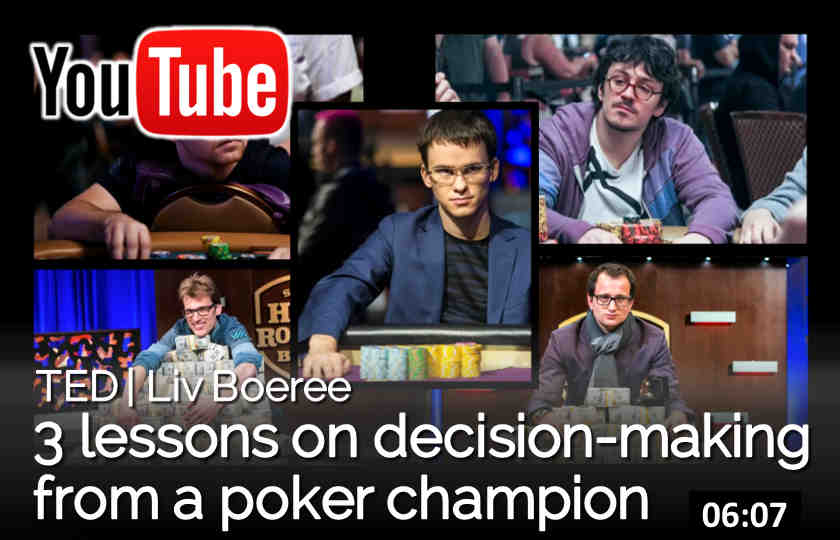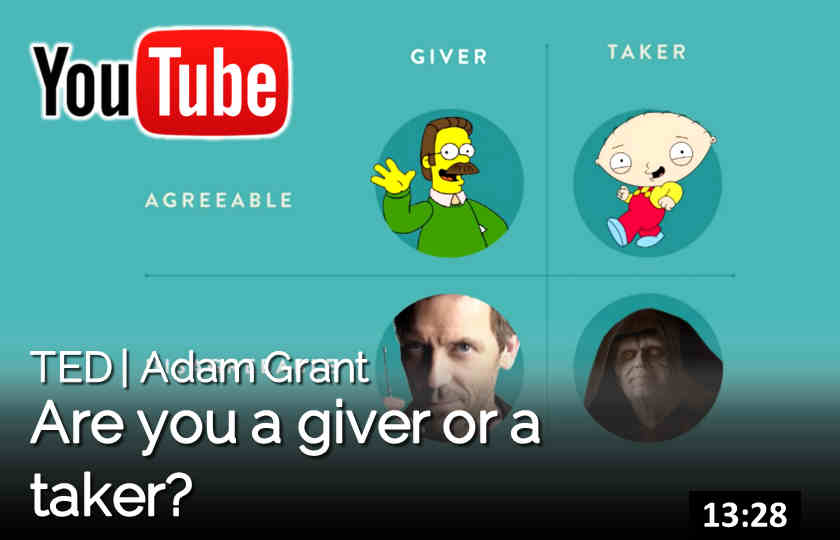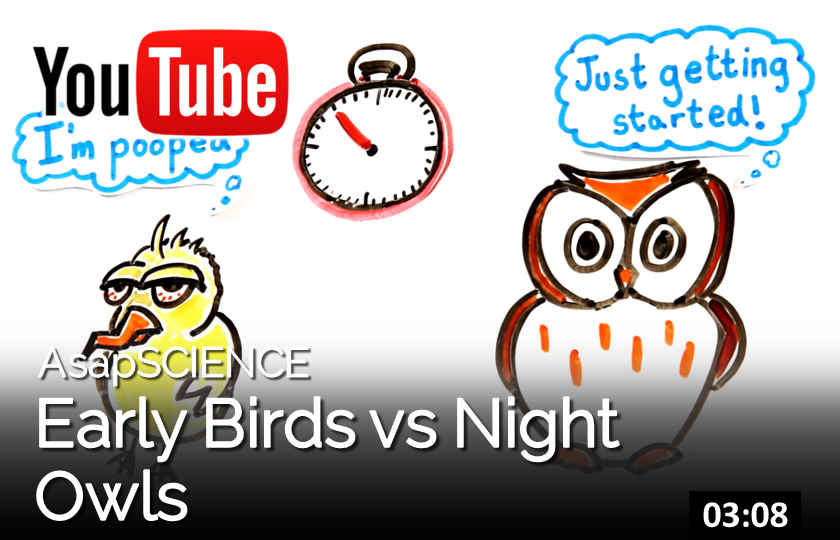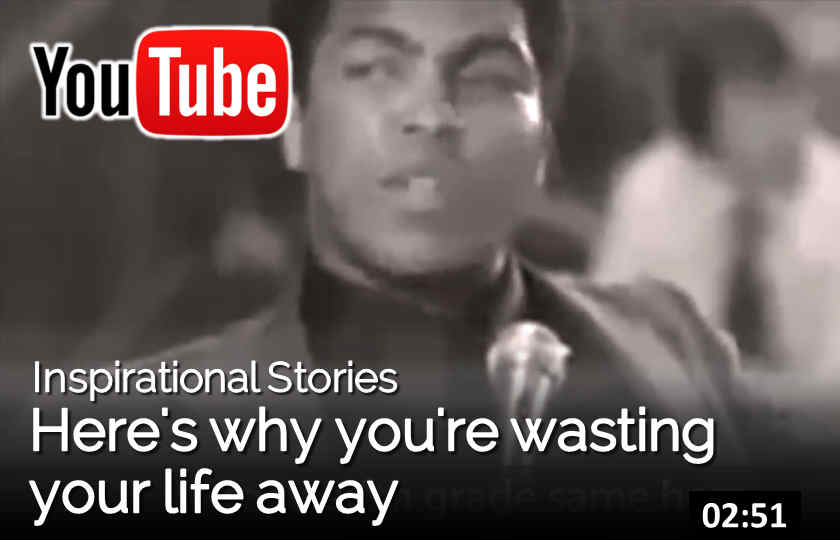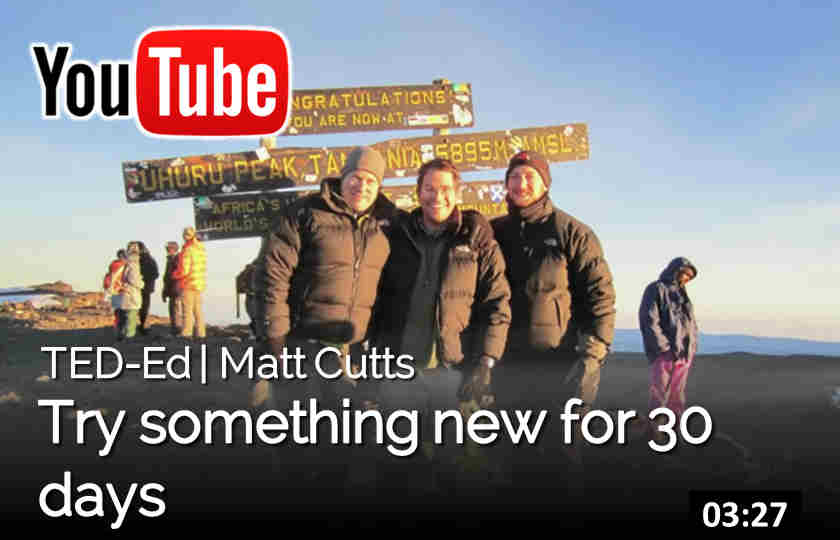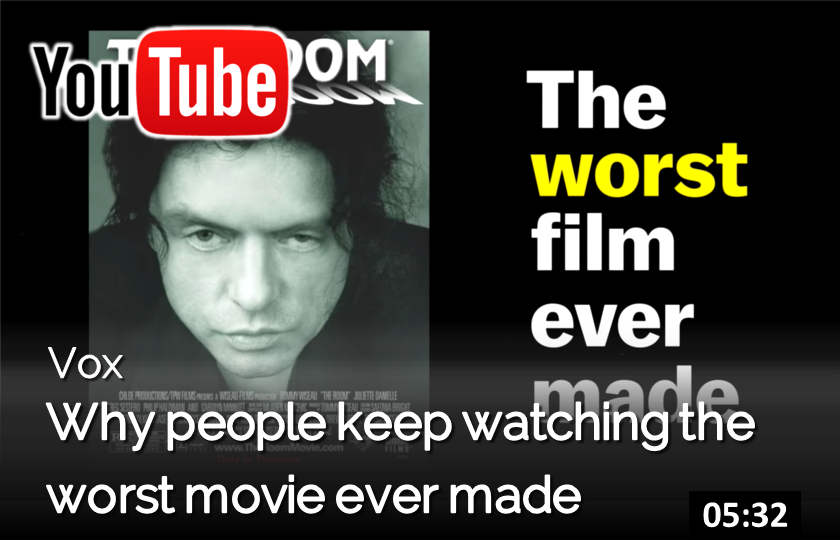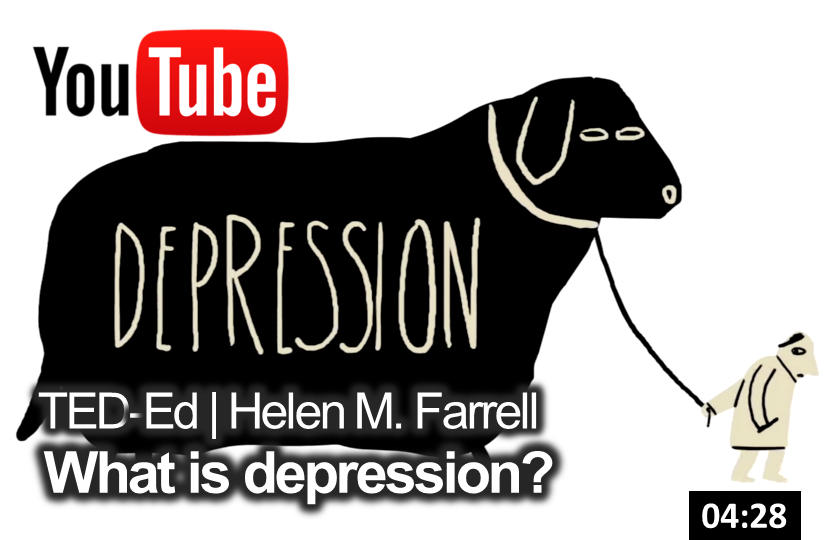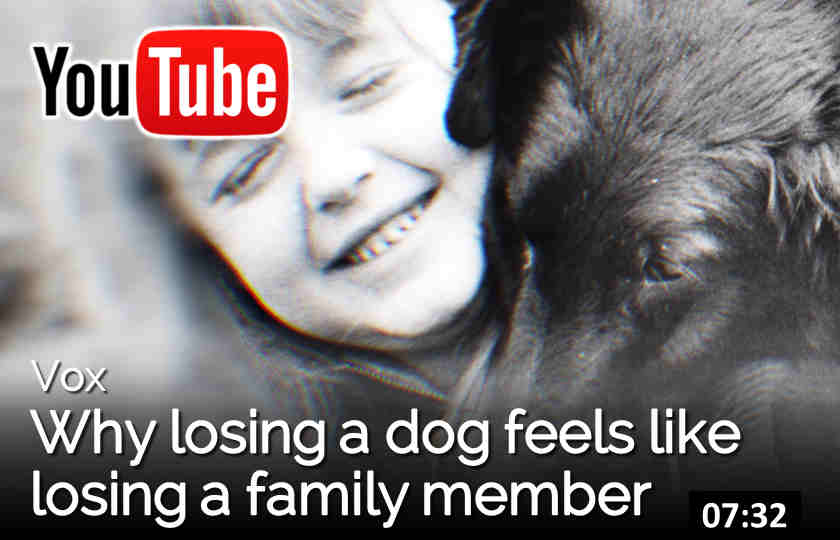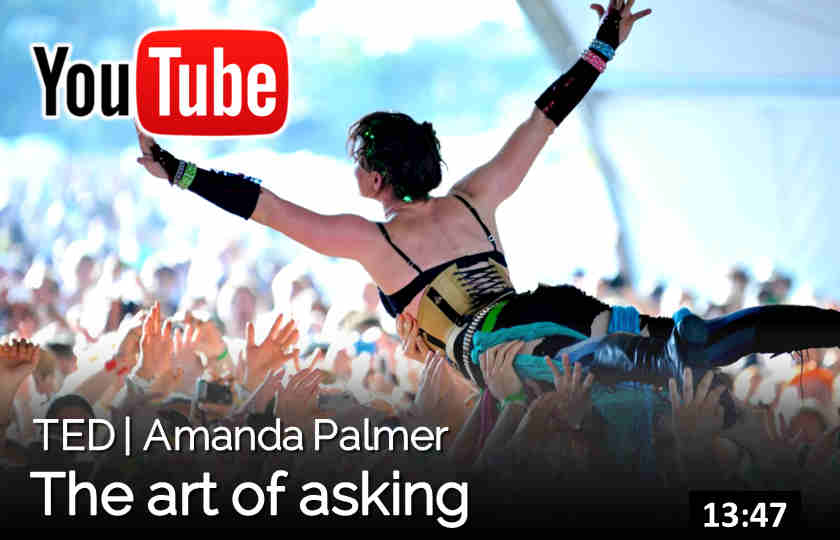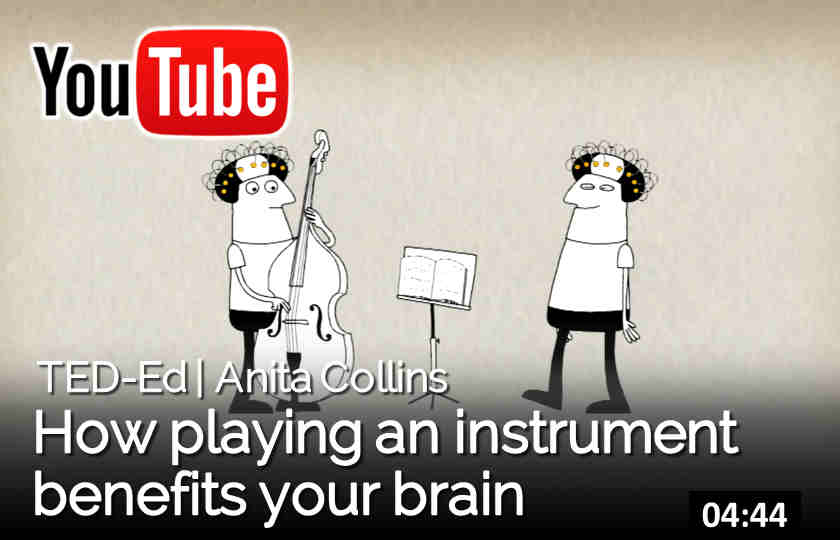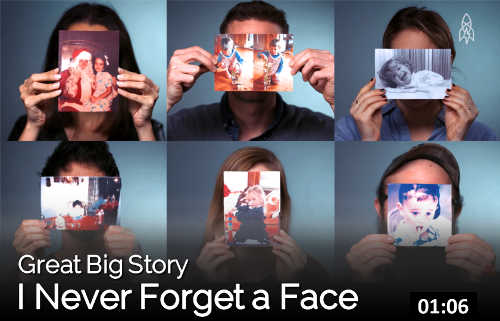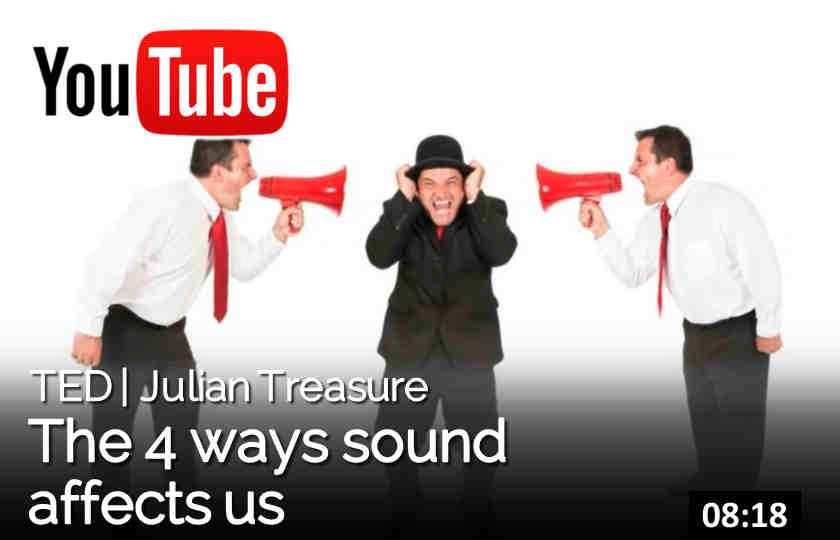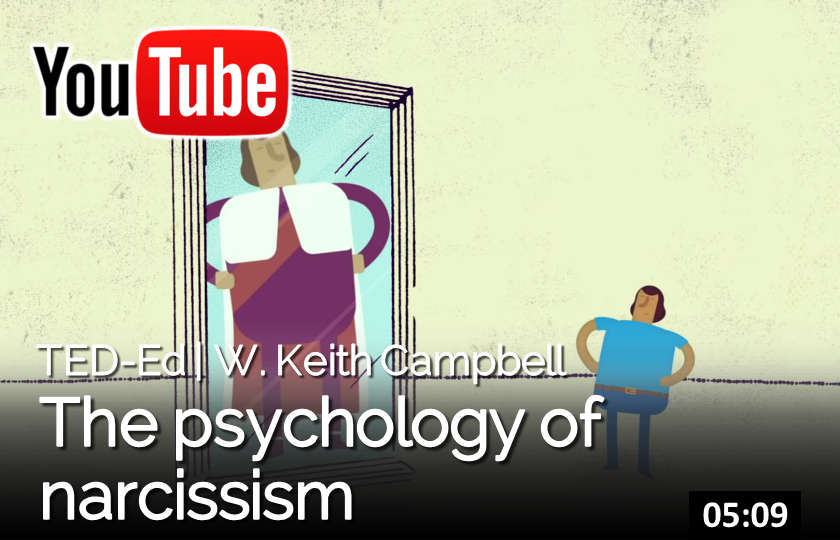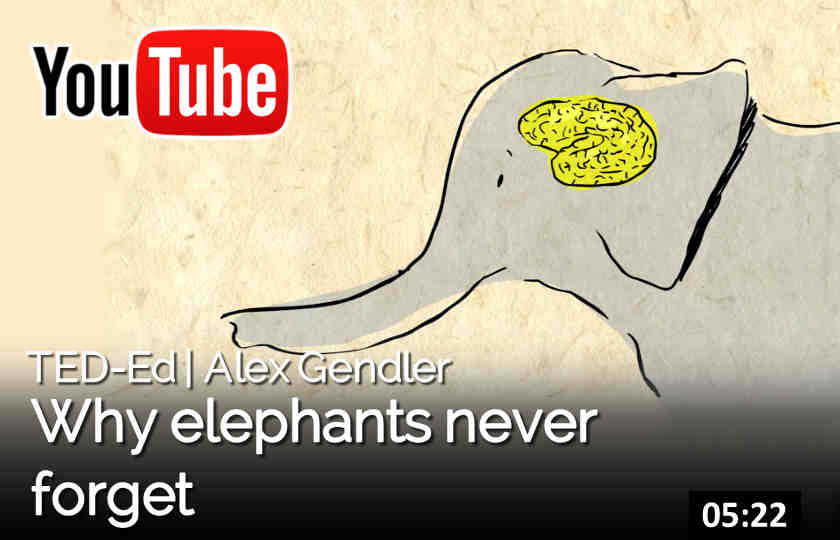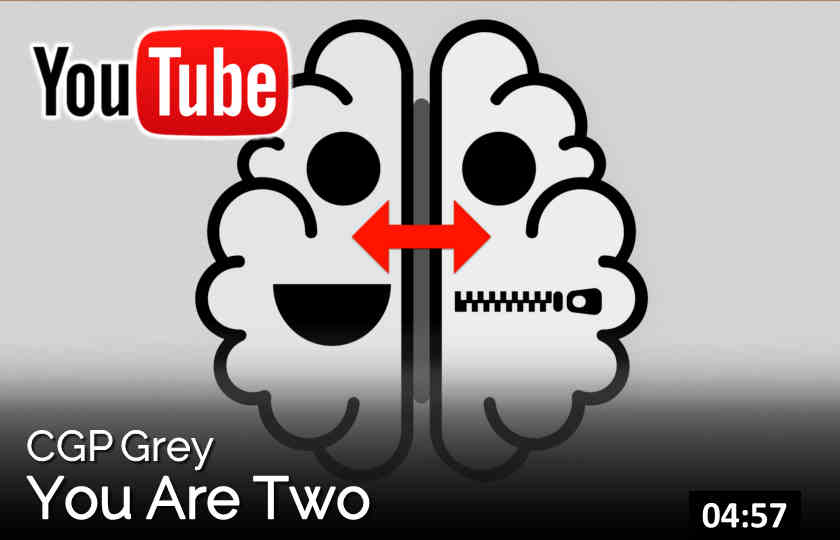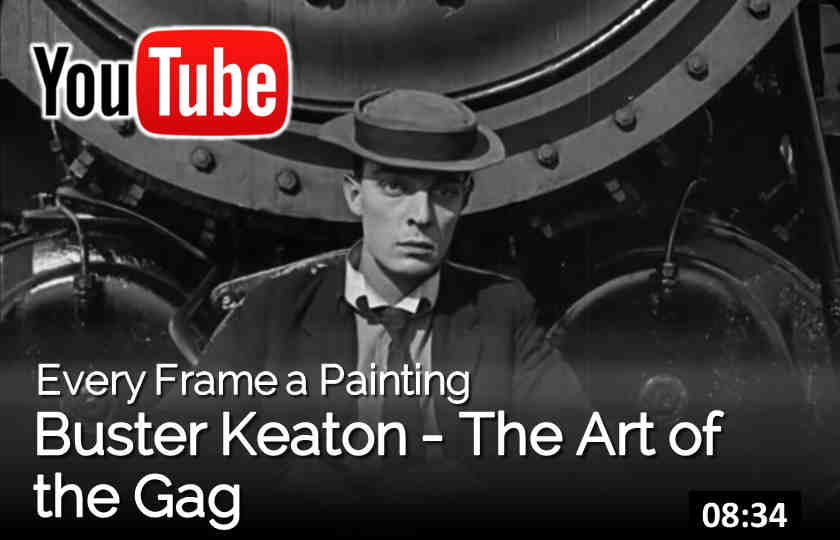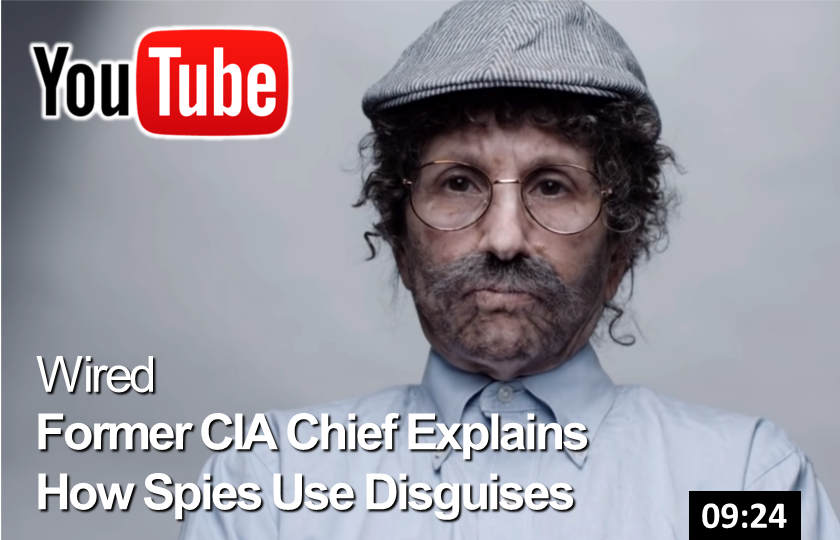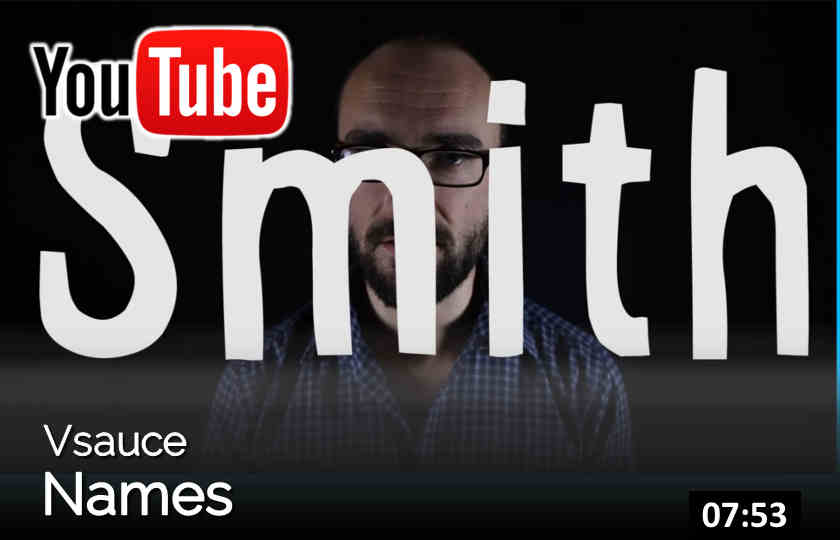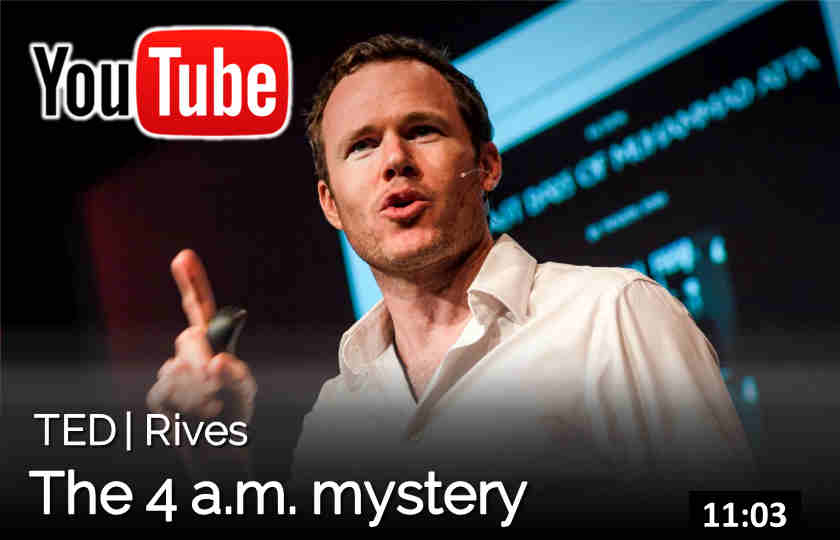Psychology
Behavior
[more]
[less]
[more]
[less]
Have you ever wondered: Am I a human being? Ze Frank suggests a series of simple questions that will determine this. Please relax and follow the prompts. Let’s begin …
[more]
Lesson by Eldridge Adams, directed by The Duke and the Duck.
[less]
[more]
[less]
Does the early bird really get the worm?
What If You Sleep 2 Hours Less Every Night?
[more]
[less]
[more]
[less]
[more]
[less]
The legendary boxer Muhammad Ali shares some of the wisdom that he has acquired.
They are hugely useful of course but in many ways, we buy the advantages our phones give us at a subtly high price we don’t entirely recognise. Some reflections on how to live well around phones.
Is there something you’ve always meant to do, wanted to do, but just … haven’t? Matt Cutts suggests: Try it for 30 days. This short, lighthearted talk offers a neat way to think about setting and achieving goals.
[more]
[less]
If you spend most of your day inside, this is for you!
[more]
Lesson by Claudia Aguirre, animation by TED-Ed.
[less]
[more]
Tommy Wiseau’s film The Room (2003) is by many accounts the worst movie ever made. The plot barely makes sense, the set design is comically inept, and most of the dialogue sounds like it was fed through Google Translate multiple times. Yet, for 14 years, people have been congregating at midnight screenings all across the globe to watch what some people call “the Citizen Kane of bad movies.”
Despite the film’s incoherency, audiences ritualistically throw plastic spoons, shout call and response lines at the screen, and toss around footballs in the aisles at monthly screenings. Knowing all the inside jokes and participatory cues gives viewers what sociologist Pierre Bourdieu termed “cultural capital.” People who know when to shout specific lines or when to hurl spoons are deemed Room veterans.
Contrary to what you may think, researchers have found that an appreciation of this kind of “trash cinema” can actually indicate higher levels of intelligence. Trash films share more characteristics with avant-garde art films than they do with typical commercial Hollywood fare. Audiences are drawn to both “trash” and “art” films for many of the same reasons, like their transgressive nature and their rejection of mainstream aesthetic norms.
Watch the video to know more about The Room and be sure to pick up Bissell’s book (that he co-wrote with Greg Sestero) to read many more legendary stories about the production of the “best worst movie.”
[less]
Fear & Sadness
We spend a little too much time worrying about how we must appear in the minds of others. However, the poignant, useful truth is that almost everyone doesn’t care at all about who we are, what we’re doing and how we’ve messed up.
[more]
[less]
What’s likeliest to kill more than 10 million human beings in the next 20 years? It’s probably not what you’d think.
[more]
Lesson by Helen M. Farrell, animation by Artrake Studio.
[less]
[more]
Lesson by Alex Gendler, animation by The Moving Company Animation Studio.
[less]
[more]
When Alvin lost his dog Rainbow, he felt as though a human has died.
Humans have a special — and somewhat an odd — relationship with dogs. 60% of Americans own a pet, and the most popular of them are dogs. Our relationship with them actually goes back pretty far. Some scholars believe that wolves and humans hunted and lived among each other — and the reason humans came out on top was because we partnered with wolves. Then, as we evolved so did our furry friends. Now, we treat these animals like family. We give them names, keep them safe, and share our lives with them. So when it’s time for them to go, it feels a lot like we’re losing a part of the family.
[less]
Happiness
We asked people of all ages the same question. What’s your biggest regret? Who’s your biggest celebrity
[more]
[less]
[more]
[less]
Writer and designer Graham Hill asks: Can having less stuff, in less room, lead to more happiness? He makes the case for taking up less space, and lays out three rules for editing your life.
[more]
[less]
[more]
[less]
[more]
Lesson by Raj Raghunathan, animation by Allen Laseter.
[less]
Love & Relationships
[more]
[less]
[more]
[less]
I didn’t say it was good… I simply ate what I was given and asked for seconds. Feel free to forward this
[more]
[less]
[more]
[less]
[more]
[less]
Who can you relate to Veronica or Vanessa? Here is a cheesy song called It’s Valentine’s Day!
[more]
[less]
[more]
[less]
[more]
[less]
[more]
Lesson by Skye C. Cleary, animation by Avi Ofer.
[less]
It may have happened when you locked eyes with your secret crush, or before an important job interview, but what exactly caused that strange, fluttering sensation in your stomach?
Mind
[more]
[less]
[more]
Lesson by TED-Ed, animation by Kozmonot Animation Studio.
[less]
[more]
Lesson by Dennis Shasha, directed by Artrake Studio.
[less]
[more]
Lesson by James Zucker, animation by Stretch Films, Inc.
[less]
[more]
For nearly a century, ten inkblots have been used as an almost mystical personality test. Long kept confidential for psychologists and their patients, the mysterious images were said to draw out the workings of a person’s mind. But what can inkblots really tell us, and how does this test work? Damion Searls details how the Rorschach Test can help us understand the patterns of our perceptions.
Lesson by Damion Searls, directed by Kozmonot Animation Studio.
[less]
[more]
Lesson by Anita Collins, animation by Sharon Colman Graham.
[less]
These tips will give you the memory boost you need!
Jennifer Jarrett never forgets a face. No, really. The super recognizer can see someone and immediately recognize them, regardless of how much time has passed.
Playing sound effects both pleasant and awful, Julian Treasure shows how sound affects us in four significant ways. Listen carefully for a shocking fact about noisy open-plan offices.
[more]
[less]
[more]
Lesson by Akshita Agarwal, animation by Qa’ed Mai.
[less]
[more]
Lesson by W. Keith Campbell, animation by TOGETHER.
[less]
You spend weeks studying for an important test. On the big day, you wait nervously as your teacher hands
[more]
Lesson by Elizabeth Cox, directed by Artrake Studio.
[less]
[more]
You might have felt it — the feeling that you’ve experienced something before, but, in reality, the experience is brand new. There are over 40 theories that attempt to explain the phenomenon of déjà vu. Michael Molina explains how neuroimaging and cognitive psychology have narrowed down the theories that could explain that feeling you’re having…again.
Lesson by Michael Molina, animation by Josh Harris.
[less]
[more]
[less]
[more]
Lesson by Alex Gendler, animation by Avi Ofer.
[less]
CGP Grey’s exploration of the fascinating disconnect between the right brain and the left brain.
Other
[more]
[less]
[more]
[less]
Former Chief of Disguise for the CIA, Jonna Mendez, explains how disguises are used in the CIA, and what aspects to the deception make for an effective disguise.
John Mulaney recalls he and a friend pranking an entire Chicago diner by playing Tom Jones’s “What’s New Pussycat?” on the jukebox 21 times in a row.
Michael from Vsauce explores names, their meanings… and promptly digresses into a myriad of seemingly unconnected topics all more fascinating than the last.
Poet Rives does 8 minutes of lyrical origami, folding history into a series of coincidences surrounding that most surreal of hours, 4 o’clock in the morning.
